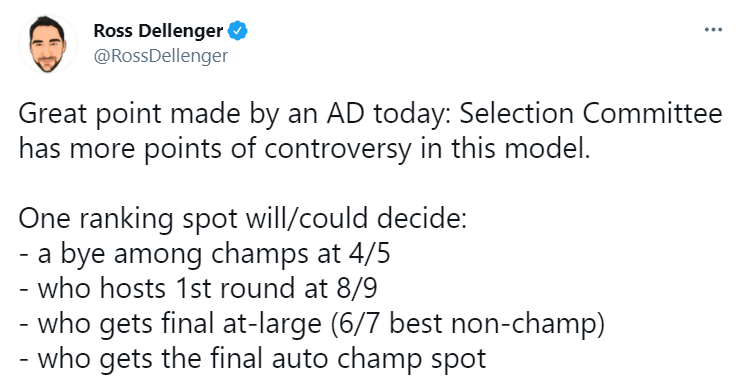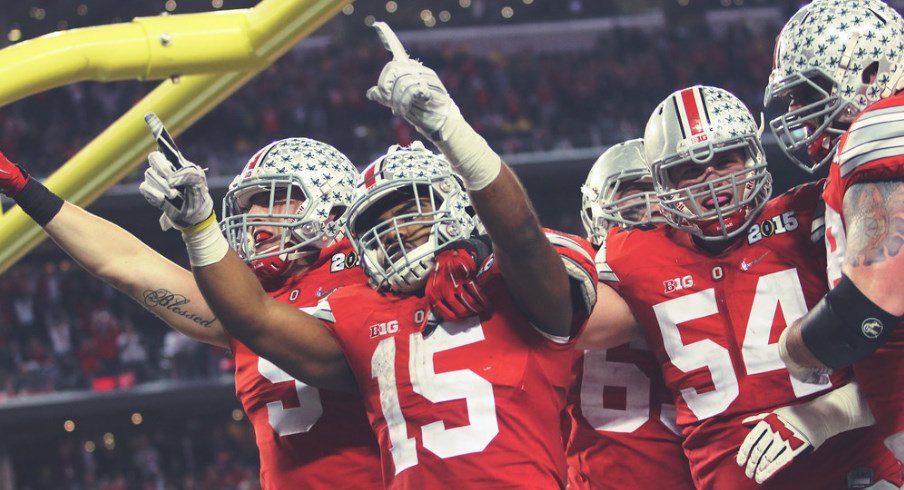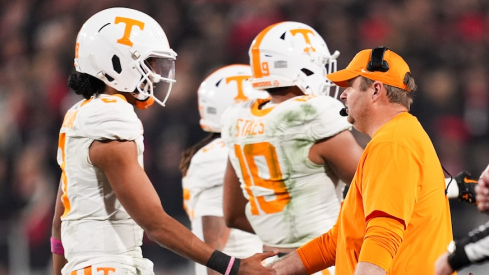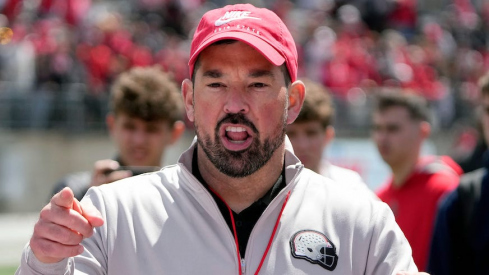"Grandpa, tell me about the BCS Wars."
"Oohhhh my child, it was a marvelous, terrifying, exhilarating time, where men were ruled by robots and letting mid-majors play in a New Year's Day bowl once every decade or so was considered an act of extreme graciousness. Millions of us sat in rapt attention on Saturday evenings to read tea leaves meted out by a future Columbian stem cell therapy company spokesman as he yelled gibberish at a tiny man in giant glasses.
We were angry all weekend; every single point in every single game was a data point either for or against your favorite team making the championship. Since only two teams could make it in, the omnipresent question of 'Is This Good For Ohio State?' hung over our heads like the Sword of Damocles. And the answer was always no, even when it was yes.
To maintain the façade, we pretended to continue to care about the Rose Bowl parade or whatever goofy crap from yesteryear that would help us ignore that it was all a farce controlled by a merciless AI. An AI that we had created from evil Transylvanian mathematics based on the Transitive Property of College Football, which no one save a few mad scientists truly understood.
It was brutal, and confusing, and it worked for a time. The boot of our electronic overlords wasn't so onerous and the arguments about the best two teams was a fun kind of stupid. But then Jimbo Fisher won a championship, and we knew we had gone too far.
It had to end."
R.I.P., BCS.
You were truly a ridiculous and overly complicated solution to a problem that should be relatively simple to solve. "Have the teams play games to see who's the best" seems obvious, but college football existed for a century before the BCS came about, and then the BCS hung around for 15 years before the powers that be decided to institute a mini-playoff. And now that said mini-playoff has predictably resulted in the same handful of teams playing each other every season, it appears that more teams will be invited to the party.
This expanded playoff is several decades late, but it's a welcome change regardless. There will be many, many breakdowns and speculative articles about it going forward, but I want to address one topic that has been a part of the College Football Postseason Solution DNA since the BCS years: controversy.

There is a line of thought that exists in the debate about what the college football postseason should look like that says that any solution should be devoid of conflict. That the teams involved in whatever we come up with should have utterly unimpeachable résumés, and that the results should speak for themselves. The playoff era gave us that mirage to cling to when in its inaugural year the Buckeyes, as the fourth seed, won a national title by defeating the first and second-seeded teams, thereby justifying their inclusion in the playoff.
Although we also ignore the logical conclusion of this line of thought which says that if Ohio State won that means they should've initially been seeded first, thus invalidating the whole exercise anyway.
And that's why I don't really have much sympathy over any handwringing about playoff expansion.
There is no perfect system. There never will be. There probably shouldn't be.
More teams involved is better for the playoff in part because there's a huge difference between "should this team get a first round bye" and "should this team have an opportunity to play for a championship," but also because it's more fun. The Athletic has a series of tweets where you can see what an expanded playoff would've looked like in past seasons, and they kick ass! Which is all that should really matter!
See, I personally love to Embrace Debate, because I fully understand and appreciate just how silly that debate is going to be. Season-long arguments about who should host playoff games and which teams get a bye and how long it's appropriate to laugh at Notre Dame for not joining a conference can be fun as hell, but only as long as we acknowledge that there probably won't be satisfactory answers to them most of the time. That's okay, because what makes an expanded playoff better than the current situation is that it introduces more of the human element that makes the sport great.
To be fair, as an Ohio State fan I have the luxury of saying that, knowing that I can rest (relatively) easy in knowing that the Buckeyes will be included in an expanded playoff field nine times out of ten. But hey! If that doesn't work we can always go back to the robots.
Until they kill us or we get sick of that again, too.


